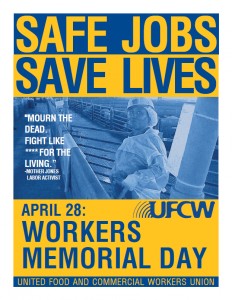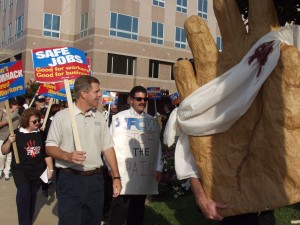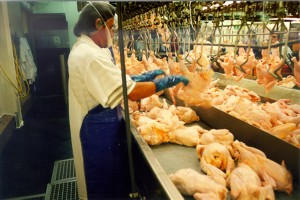Extreme heat can kill or seriously injure workers.
As summer approaches, we need to be prepared to keep workers safe with the additional stress of hot weather. There are lots of things we can do to protect workers. While employers have a duty to protect workers from heat-related hazards under the OSH Act, it is our duty to make sure that employers are enforcing those protections and workers are safe.
In order to help protect workers, we need to learn:
- When heat and humidity are becoming workplace hazards.
- What a heat-related medical emergency is and how to respond quickly and effectively.
To prevent heat-related injury or death, we need to make sure our work sites:
- Are using preventative measures to protect workers from heat-related
hazards. - Have a clear procedure for responding to a heat-related medical
emergency that is well-known to workers.
Additional resources to help protect workers from heat-related hazards
and keep workplaces safe include:
- The OSHA heat safety tool can be downloaded to Android or iPhones in
English or Spanish here. - The UFCW Safety and Health Office can provide live training via computer for local union staff and members.
- OSHA’s heat stress e-tool.







